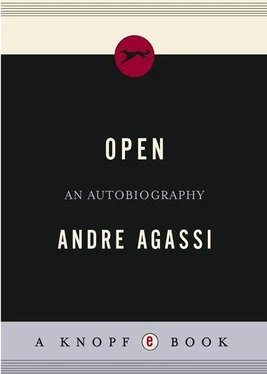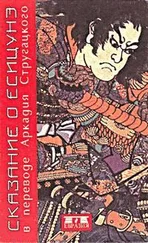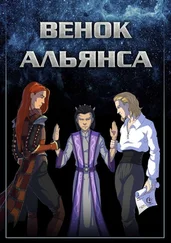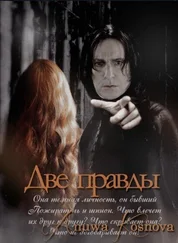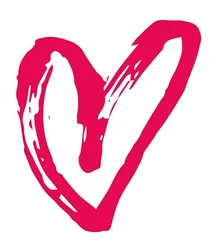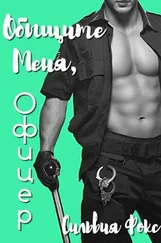Unknown - i a3f9967826fa0ec9
Здесь есть возможность читать онлайн «Unknown - i a3f9967826fa0ec9» весь текст электронной книги совершенно бесплатно (целиком полную версию без сокращений). В некоторых случаях можно слушать аудио, скачать через торрент в формате fb2 и присутствует краткое содержание. Жанр: Старинная литература, на английском языке. Описание произведения, (предисловие) а так же отзывы посетителей доступны на портале библиотеки ЛибКат.
- Название:i a3f9967826fa0ec9
- Автор:
- Жанр:
- Год:неизвестен
- ISBN:нет данных
- Рейтинг книги:5 / 5. Голосов: 1
-
Избранное:Добавить в избранное
- Отзывы:
-
Ваша оценка:
- 100
- 1
- 2
- 3
- 4
- 5
i a3f9967826fa0ec9: краткое содержание, описание и аннотация
Предлагаем к чтению аннотацию, описание, краткое содержание или предисловие (зависит от того, что написал сам автор книги «i a3f9967826fa0ec9»). Если вы не нашли необходимую информацию о книге — напишите в комментариях, мы постараемся отыскать её.
i a3f9967826fa0ec9 — читать онлайн бесплатно полную книгу (весь текст) целиком
Ниже представлен текст книги, разбитый по страницам. Система сохранения места последней прочитанной страницы, позволяет с удобством читать онлайн бесплатно книгу «i a3f9967826fa0ec9», без необходимости каждый раз заново искать на чём Вы остановились. Поставьте закладку, и сможете в любой момент перейти на страницу, на которой закончили чтение.
Интервал:
Закладка:
29
I PULL OUT OF THE 2006 AUSTRALIAN OPEN, then pull out of the entire clay season. I hate to do it, but I need to save myself for the 2006 Wimbledon, which I quietly, privately decide will be my last. I’m saving myself for Wimbledon. I never thought I’d say such a thing. I never dreamed a proper, respectful goodbye to Wimbledon would feel so important.
But Wimbledon has become hallowed ground for me. It’s where my wife shined. It’s where I first suspected that I could win, and where I proved it to myself and the world. Wimbledon is where I learned to bow, to bend my knee, to do something I didn’t want to do, wear what I didn’t want to wear, and survive. Also, no matter how I feel about tennis, the game is my home. I hated home as a boy, and then I left, and I soon found myself homesick. In the final hours of my career I’m continually chastened by that memory.
I tell Darren this will be my last Wimbledon, and the coming U.S. Open will be my last tournament ever. We make the announcement just as Wimbledon gets under way. Immediately after, I’m startled by how differently my peers look at me. They no longer treat me as a rival, a threat. I’m retired. I’m irrelevant. A wall is let down.
Reporters ask, Why now? Why did you choose to retire now? I tell them I didn’t. I simply can’t play anymore. That’s the finish line I’ve been seeking, the finish line with the inexorable pull. Can’t play, as opposed to won’t play. Unwittingly, I’ve been seeking that moment when I’d have no choice.
Bud Collins, the venerable tennis commentator and historian, the coauthor of Laver’s autobiography, sums up my career by saying I’ve gone from punk to paragon. I cringe. To my thinking, Bud sacrificed the truth on the altar of alliteration. I was never a punk, any more than I’m now a paragon.
Also, several sportswriters muse about my transformation, and that word rankles. I think it misses the mark. Transformation is change from one thing to another, but I started as nothing. I didn’t transform, I formed. When I broke into tennis, I was like most kids: I didn’t know who I was, and I rebelled at being told by older people. I think older people make this mistake all the time with younger people, treating them as finished products when in fact they’re in process. It’s like judging a match before it’s over, and I’ve come from behind too often, and had too many opponents come roaring back against me, to think that’s a good idea.
What people see now, for better or worse, is my first formation, my first incarnation. I didn’t alter my image, I discovered it. I didn’t change my mind. I opened it. J.P. helps me work through this idea, to explain it to myself. He says people have been fooled by my changing looks, my clothes and hair, into thinking that I know who I am. People see my self-exploration as self-expression. He says that, for a man with so many fleeting identities, it’s shocking, and symbolic, that my initials are A.K.A.
Sadly, in the early summer of 2006, despite the best efforts of J.P. and others, I can’t yet explain this to reporters. Even if I could, the press room at the All England Club isn’t the place.
I can’t explain it to Stefanie either, but I don’t need to. She knows all. In the days and hours leading up to Wimbledon, she stares into my eyes and pats my cheek. She talks to me about my career. She talks about hers. She tells me about her last Wimbledon. She didn’t know it would be her last. She says it’s better this way, to know, to go out on my own terms.
Wearing a necklace made for me by Jaden—a chain of block letters that spells out Daddy Rocks—I face Boris Pashanski, from Serbia, in the first round. As I step on the court, the applause is loud and long. On the first serve, I can’t see the court, because my eyes are filled with tears. Despite feeling as if I’m playing in a suit of armor, with a back that will not loosen, I persist, endure. I win.
In the second round I beat Andreas Seppi, from Italy, in straight sets. I’m playing well, which gives me hope going into my third-round match, against Nadal. He’s a brute, a freak, a force of nature, as strong and balletic a player as I’ve ever seen. But I feel—the delusional effects of winning—that I might be able to make inroads. I like my chances. I lose the first set, 7–6, but take hope from how close it was.
Then he annihilates me. The match takes seventy minutes. My window of opportunity is fifty-five. That’s when I start to feel my back. Late in the match, with Nadal serving, I can no longer stand still. I need to move around, stomp my foot, get the blood flowing. The stiffness is so severe, the pain so great, returning is the last thing on my mind. I’m thinking only of remaining vertical.
After, in a moment dripping with irony, Wimbledon officials break with tradition to hold an on-court interview with Nadal and me. They never hold on-court interviews. I tell Gil: Sooner or later, I knew I’d get Wimbledon to break with tradition.
Gil isn’t laughing. He never laughs while a fight is still going on.
It’s almost over, I tell him.
I go to Washington, D.C., and play an Italian qualifier named Andrea Stoppini. He beats me as if I’m the qualifier, and I feel ashamed. I thought I needed a tune-up for the U.S. Open, but this tune-up has left me shaken. I tell reporters that I’m struggling with the end more than I expected. I tell them that the best way I can explain it is this: Many of you, I’m sure, don’t like your jobs. But imagine if someone told you right now that your story about me would be your last. After this, you’ll never be able to write another word for as long as you live. How would you feel?
EVERYONE TRAVELS TO NEW YORK. The whole team. Stefanie, the children, my parents, Perry, Gil, Darren, Philly. We invade the Four Seasons and colonize Campagnola. The children smile to hear the applause as we walk in. To my ear, the applause sounds different this time. It has a different timbre. It has a subtext. They know this isn’t about me, it’s about all of us finishing something special together.
Frankie seats us at the corner table. He makes a big fuss over Stefanie and the children. I watch him serve Jaden all my favorite foods, and I watch Jaden enjoy them. I watch Jaz enjoy the food too, though she insists that each entrée remain separate. They mustn’t touch. A vari-ation of the blueberry muffin imperative. I watch Stefanie watching the kids, smiling, and I think of the four of us, four distinct personalities. Four different surfaces. And yet a matching set. Complete. On the eve of my final tournament, I enjoy that sense we all seek, that knowledge we get only a few times in life, that the themes of our life are connected, the seeds of our ending were there in the beginning, and vice versa.
In the first round I play Andrei Pavel, from Romania. My back seizes up midway through the match, but despite standing stick straight I manage to tough out a win. I ask Darren to arrange a cortisone shot for the next day. Even with the shot, I don’t know if I’ll be able to play my next match.
I certainly won’t be able to win. Not against Marcos Baghdatis. He’s ranked number eight in the world. He’s a big strong kid from Cyprus, in the midst of a great year. He’s reached the final of the Australian Open and the semis of Wimbledon.
And then somehow I beat him. Afterward I’m barely able to stagger up the tunnel and into the locker room before my back gives out. Darren and Gil lift me like a bag of laundry onto the training table, while Baghdatis’s people hoist him onto the table beside me. He’s cramping badly. Stefanie appears, kisses me. Gil forces me to drink something. A trainer says the doctors are on the way. He turns on the TV above the table and everyone clears out, leaving just me and Baghdatis, both of us writhing and groaning in pain.
Читать дальшеИнтервал:
Закладка:
Похожие книги на «i a3f9967826fa0ec9»
Представляем Вашему вниманию похожие книги на «i a3f9967826fa0ec9» списком для выбора. Мы отобрали схожую по названию и смыслу литературу в надежде предоставить читателям больше вариантов отыскать новые, интересные, ещё непрочитанные произведения.
Обсуждение, отзывы о книге «i a3f9967826fa0ec9» и просто собственные мнения читателей. Оставьте ваши комментарии, напишите, что Вы думаете о произведении, его смысле или главных героях. Укажите что конкретно понравилось, а что нет, и почему Вы так считаете.
